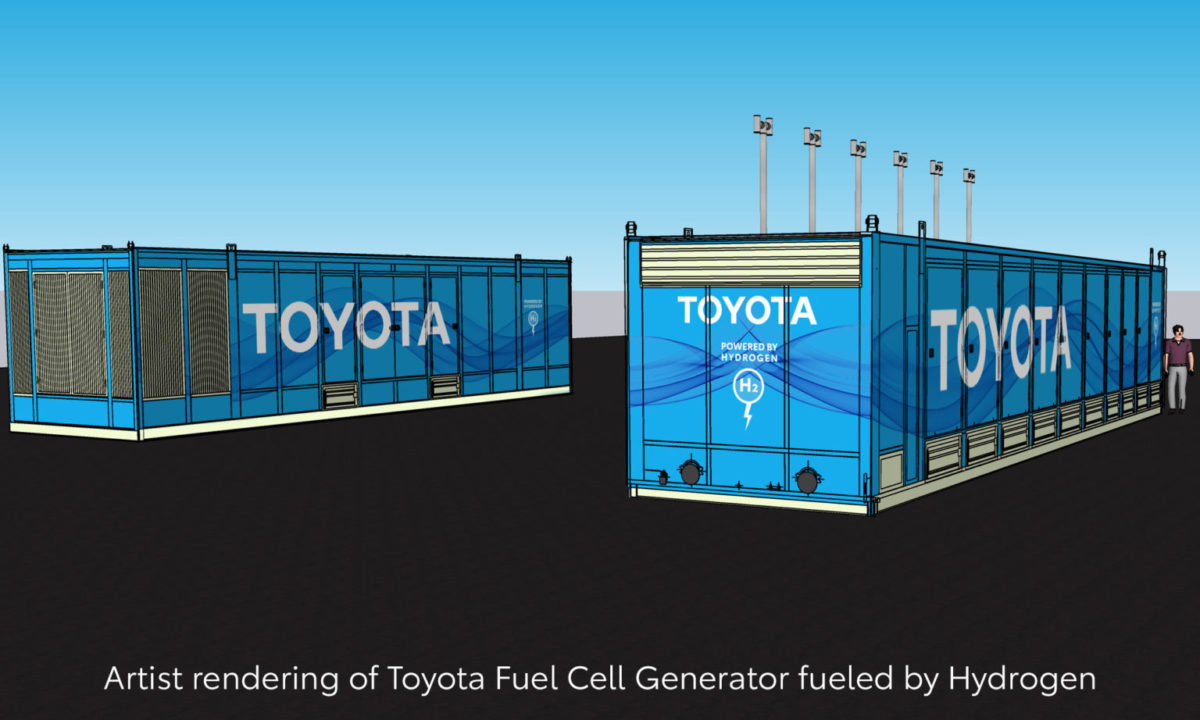From pv magazine USA
Toyota Motor North America announced it is partnering with the National Renewable Energy Laboratory (NREL) to construct, install, and test a 1 MW proton exchange membrane fuel cell power generation system at the NREL Flatirons campus in Arvada, Colorado.
The program is a 3-year, $6.5 million project funded by the Department of Energy’s (DOE) Hydrogen and Fuel Cell Technologies Office, part of DOE’s Office of Energy Efficiency and Renewable Energy.
The 1 MW system integrates multiple Toyota fuel cell modules to create a dispatchable stationary power system. In a previous partnership between the two, NREL demonstrated the use of an automotive fuel cell system to provide carbon-free power for a data center. This new test system is about 15 times the size of the previous test and is capable of both direct current and alternating current power output.
Toyota has been developing fuel cell technologies for over 25 years, largely in the light duty electric vehicle space. Toyota will provide the fuel cell modules and is partnering with systems integrator Telios for the design, balance-of-plant, and build of the system for delivery to NREL. Toyota developed a control system to manage operation of the modules and maximize efficiency and system life. Toyota said the system’s simplified design makes it a suitable candidate to be a drop-in replacement for conventional generators.
Popular content
“Achieving carbon neutrality requires all of us to explore new applications of zero-emission technology, including how that technology will integrate with other systems, which the project with NREL will identify,” said Christopher Yang, group vice president, business development, fuel cell solutions, Toyota. “The application of our modules in deployments of this magnitude shows the scalability of Toyota’s fuel cell technology, whether it is a single fuel cell module for one passenger vehicle or multiple systems combined to power heavy-duty equipment.”
NREL will stress-test and push the operational boundaries of the system to identify performance limitations and degradation. The research project will also include an assessment of system performance when integrated with energy storage and renewable energy generation systems like solar and wind.
“We will study the scaling of PEM fuel cell systems for stationary power generation to understand what the performance, durability and system integration challenges are,” said Daniel Leighton, an NREL research engineer and principal investigator on the project. “This fuel cell generator system also creates a new megawatt-scale fuel cell research capability at NREL.”
The fuel cell generator is part of NREL’s Advanced Research on Integrated Energy Systems (ARIES) at the Flatirons Campus. The system includes a 1.25 MW PEM electrolyzer, 600-kg hydrogen storage system and 1 MW fuel cell generator. The fuel cell generator system will be installed this summer, and the full system will be commissioned later in 2022, said Toyota.
This content is protected by copyright and may not be reused. If you want to cooperate with us and would like to reuse some of our content, please contact: editors@pv-magazine.com.



Could you comment on the efficiency of the whole ESS cycle?
What is the point in storing energy in hydrogen (at, say, a 66% or 70%, or how much?) then recovering it as electricity (at, say, another 65% or how much?)…? Can we really waste that much energy? Am I wrong?
I don´t see the point here, please enlight me.
Hi,
That is still better than wasting unpredicted windpeaks. Efficiency will improve later anyway.
my 5 cents,
Anton/Austria